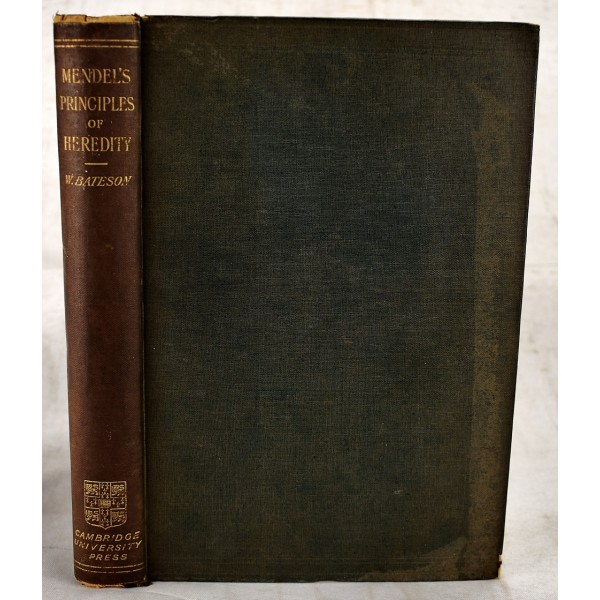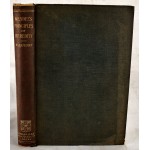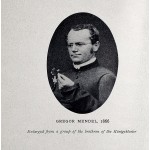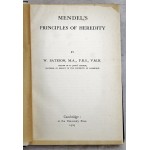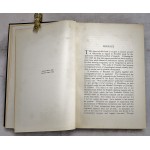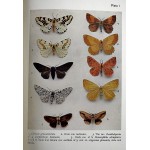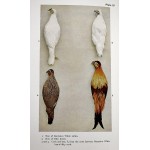Mendel's Principles of Heredity
Mendel's Principles of Heredity
W. Bateson
Cambridge University Press, 1909
[The First Textbook on Genetics] Interesting Baltimore Provenance: from the library of Ambassador John Work Garrett. Bound in publisher's cloth. Gilt lettering. Hardcover. Good binding and cover. Shelf wear. Light foxing to end pages. xiv, 396 pages, 6 color plates; 24 cm. 1909 printing.
"The first book on Mendelism in English, and the first English textbook of genetics. It contains a reprint of the first English translation of Mendel's 'Versuch Uber Pflanzen-Hybriden' . . . which Bateson had published the previous year together with the first edition in English of Mendel's second paper on Hieracium (1869). Bateson named the science 'genetics' in 1905-06" - Garrison-Morton 241 (1902 ed). Refs: Morton 244. Norman 136 (this edition). Also see Printing in the Mind of Man, 356b.
"The object of this book is to give a succinct account of discoveries in regard to Heredity made by the application of Mendel's method of research. Following the clue which his long lost papers provided we reached a point from which classes of phenomena hitherto proverbial for their seeming irregularity can be recognized as parts of a consistent whole. The study of Heredity thus becomes an organized branch of physiological science, already abundant in results, and in promise unsurpassed." - Preface.
Bookplate and signature of John and Alice Garrett on front end page. Garrett (1872-1942) was an American diplomat who resided at Evergreen mansion in Baltimore. "During World War I, Edith Wharton became friends with the Garretts in Paris. John Work Garrett was a diplomat who later became the U.S. ambassador to Italy. He was also a distinguished collector of rare books, fine art, and coins. Similarly, his wife, Alice, was a well-connected patron of the arts who worked in wartime charities with Wharton. The Garretts seem to have represented a cosmopolitan ideal for Wharton, seamlessly integrating political influence, aesthetic cultivation, and tangible service to those wounded or displaced by the war. Their understanding of the history, culture, and languages of other nations was of a high order, enough to enable delicate transnational negotiations in the context of war, and they seem to have transformed Wharton's view of Americanness."
